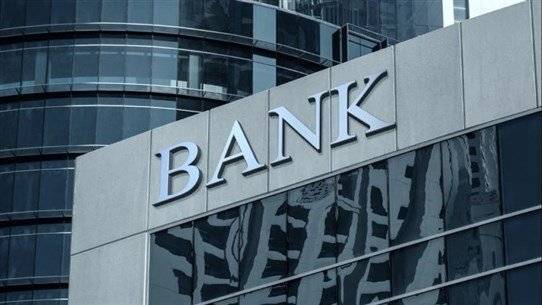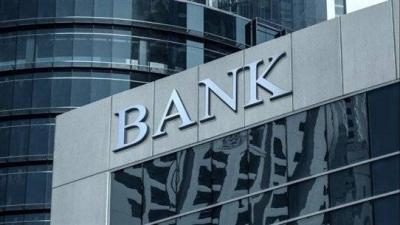The restructuring of the banking system is expected to become a priority on the agenda as the Lebanese government hastens to prepare its legislative and executive approaches. This comes as part of implementing the commitments set out in the preliminary agreement with the International Monetary Fund (IMF). The government has completed the first phase by approving required amendments to the banking secrecy law, alongside a set of laws aimed at enhancing transparency in account monitoring and accountability.
A senior banker revealed to "Asharq Al-Awsat" that the new methodology adopted by Prime Minister Najib Mikati, which is based on prior coordination with relevant authorities and bodies, has begun to yield practical results. This is particularly evident in the positive cooperation from legislative authority headed by Speaker Nabih Berri, as well as the parliamentary committees, especially the Finance and Budget Committee, which is urging the Ministry of Finance to expedite the preparation of amendments needed to finalize the current year's budget law project before presenting it to the parliament's general assembly by the end of this month.
Despite the limited functions of the caretaker government, hopes are high for extended cooperation between the legislative and executive branches to develop legal solutions for drafting the remaining bills from the international conditions package. This particularly includes the project to impose exceptional controls on capital and transfers (capital control), which paves the way for tackling the Central Bank's financial position and its organizational and supervisory structures and reforming the status of banks. This includes determining the fate of deposits from all categories and setting timeframes for allowing their owners to access them, starting with the protection line established by the government at $100,000.
According to the provisions of the preliminary agreement, the government must approve a bank restructuring strategy that acknowledges the significant losses suffered by the sector and addresses them while protecting small depositors and minimizing reliance on public resources. Parliamentary approval is also necessary for an appropriate emergency legislation to rectify the banking situation as required for the implementation of the bank restructuring strategy and to initiate the restoration of the financial sector's health, which is a vital factor for supporting growth. Additionally, there should be an assessment of the largest 14 banks individually, with external assistance through a contract signed with a reputable international company.
In this context, Prime Minister Najib Mikati's meeting last week with the President of the Banking Association, Salim Sfeir, highlighted the importance of reaching an agreement with the IMF and the necessity of involving the banking sector in restructuring plans.
According to the government's updated plan, which Mikati has promised important modifications to, approximately 83% of the total assets of the largest banks will be assessed to determine the capital requirements based on loss assessments and deposit structure, conducted by the banking control committee for each bank individually, with initial results expected by the end of September. Consequently, previous or new shareholders, or both, will be required to inject new capital into the banks classified as "viable" based on the supervisory analysis of their business plans, while non-viable banks will be resolved through immediate procedures to be implemented under the emergency law for bank restructuring. It is noted that the structural criteria will be completed by the end of November this year. In the longer term, there are commitments to strengthen the regulatory framework for the banking sector, including reviewing core banking legislation and frameworks for supervision, resolution, and deposit insurance, to maintain the integrity of the banking system and restore confidence in it.
The former head of the Banking Control Commission, Samir Hamoud, asserts that "the current monetary crisis is not insurmountable, but solutions cannot contradict the constitution and Lebanon's identity in a free system while preserving private property." He points out that "the correct approach to the solution is to acknowledge the problem and address it from the head and foundation, not from the periphery in a patchwork manner." It is noted that the monetary crisis has three facets: a banking crisis, a depositor crisis, and a currency exchange and payment systems crisis.
Hamoud considers that "banks are currently essentially in a state of default and are subject to Law 2-67 and that the effects of Law 110-91 and Law 192-93 are no longer sufficient to address the situation. The reason for classifying banks as being in default is that their funds at the Central Bank or government bonds are not easily liquidated to cope with withdrawals from depositors in US dollars. Meanwhile, depositors' crisis stems from new conventions and denominations in local dollars and withdrawals in Lebanese pounds at inflated prices, which violate the laws, ultimately depriving them of their savings and lifelong earnings."
He explains in a discussion with "Asharq Al-Awsat" that the exchange rate crisis indicates a disruption in the monetary system, with a regression to cash payment systems, while the world is moving towards digital or even virtual payment systems. Additionally, the lira is losing essential elements of security in its use as a currency for saving, lending, and pricing both tangible and intangible values. Alongside this, since the exchange rate cannot be addressed before the reformation of the banking sector, and consequently, it will not be possible to transition from cash payment systems unless a unified local payment network in a convertible national currency is established to allow for free and easy transfers.
Hamoud proposes a series of procedural steps aimed at restoring trust in the sector, as a positive entry point for returning deposits and stabilizing exchange rates while adhering to Lebanon's historical identity—ensuring no confiscation of private property, no parallel markets, and no criminal prosecution, but allowing for freedom in transfers.
These proposed steps include opening up licensing for digital banks with capital in foreign currency, halting internal clearing in foreign currency, restricting final collections to accounts abroad, not depositing with the Central Bank in foreign currency, while allowing the Central Bank the freedom to determine and regulate liquidity for banks in all currencies. It is also suggested to create a biometric local payment network in local currency that accepts payments through international cards, according to local exchange rates, with the freedom of automatic transfers, issuing digital and biometric cards backed by US dollars for both domestic and international use, and issuing digital and biometric cards backed by lira that cannot automatically be converted to dollars for local payments, with daily clearing of positions through a fund managed by the Central Bank in local and foreign accounts with correspondents.




